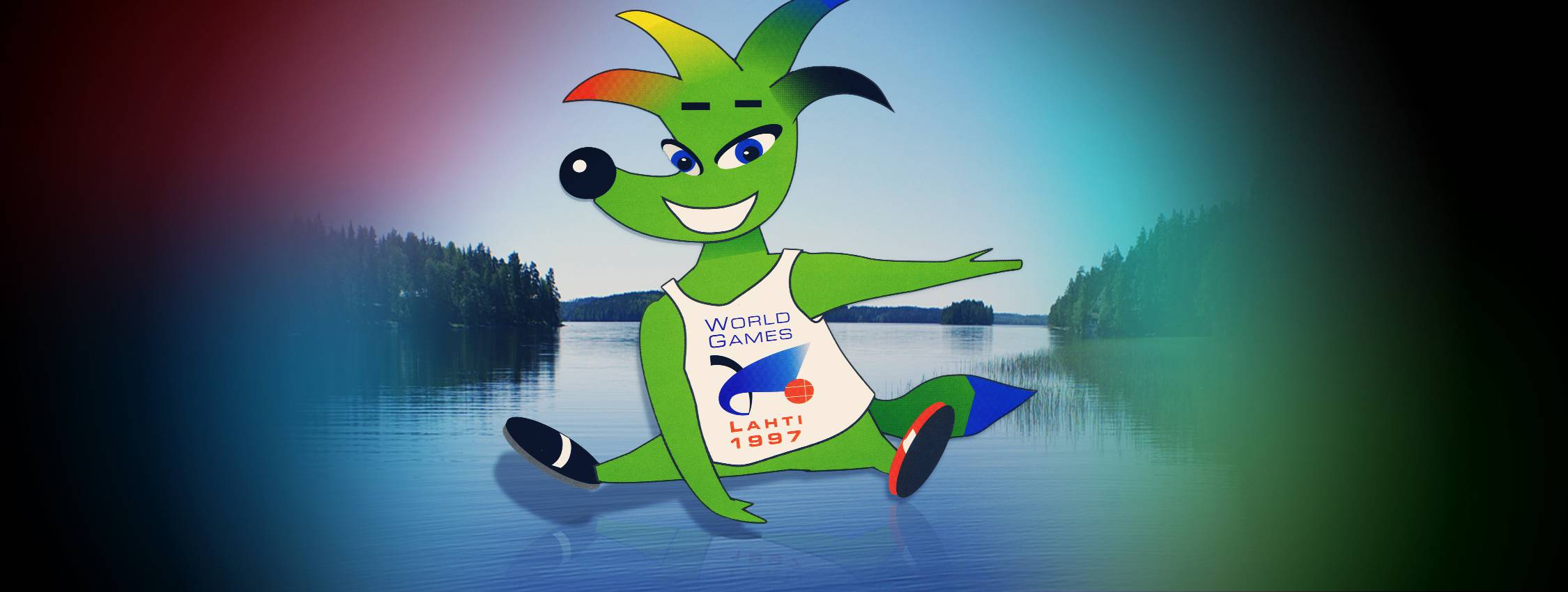More than a stopgap
From the deep south to the far north, from Port Elizabeth in South Africa to Lahti, Finland. The fifth edition of the World Games was held from 7th to 17th August 1997 in this Finnish city, best known for its Nordic Skiing events. Port Elizabeth had withdrawn from its commitment to host the Games just three years before the start of the event.
The official programme of the Lahti Games included 22 sports. A total of 164 medal events attracted 93,000 spectators during the ten competition days. 1,566 athletes from 70 nations strived for the gold of The World Games.
Port Elizabeth was the original choice to host the event in 1997. The Mayor of Port Elizabeth duly received the World Games flag at the closing ceremony of TWG 1993 in The Hague, Netherlands. But in August 1994, Port Elizabeth decided to pull out of the Games due to the political situation in the country. Lahti in Finland stepped in at short notice and signed the host contract in January 1995.
The city had a worldwide reputation as a winter sports hotspot. Now the organisers, under the leadership of Mayor Kari Salmi, President of the Organising Committee, showed that they could also be excellent hosts of a summer sports event. A reference to winter was unmistakable: some competitions took place literally in the shadow of the big ski-jumping hills. The participants of The World Games 1997 recall the event as a very compact Games, with sports venues closely clustered in the city centre. Only twelve venues were needed to host all the competitions. These included the Lahti City Theatre (Bodybuilding) and the Jokimaa Horse Racing Centre (Parachuting).
The Opening Ceremony took place on 7th August at the Lahti Sport Centre. The official opening was performed by IOC President Juan-Antonio Samaranch. Finnish Minister of Culture Claes Andersson also attended. IWGA President Ron Froehlich, newly elected in 1994, spoke for the IWGA at the opening of the Games.
The medals table was headed by the USA (17 gold medals/18 silver/11 bronze) ahead of China (16/14/5) and Germany (15/16/10). The Americans dominated especially the roller sports disciplines. The USA won 11 of their 17 gold medals in this sport alone. Russia presented itself particularly strongly in the Gymnastics disciplines and won 10 gold medals.
AirSports (Parachuting), DanceSport, Aerobics and JuJitsu made their debut in Lahti and have been a permanent fixture in the TWG programme ever since. Squash was also included in the competition calendar for the first time. Women's Weightlifting was for the first and only time part of the event; this discipline has been Olympic since 2000. The individual Trampoline disciplines were also included in the Olympic programme after the Lahti Games. It should also be noted that Trampoline and Sport Acrobatics were counted as separate sports for the last time; the two federations merged later with the Fédération Internationale de Gymnastique. The disciplines are now listed under Gymnastics.
Invitational sports included Boule Lyonnaise and Tug of War Indoor. Both disciplines were subsequently implemented in the official programme. Floorball was also an invitational sport. After the federation was accepted into the IWGA in 2014, Floorball made its official debut at the 2017 World Games. Pesapallo, a Finnish variant of Baseball, provided local colour as an invitational sport.
Due to the compactness of the event, participants were able to meet with other competitors in the city, which gave them a real feeling of being part of a multi-sport event. Lahti Happenings, under the Presidency of Reijo Mäki-Korvelo, arranged for the production by the Finnish broadcasting company YLE. It aired more than 30 hours of TWG (15 hours live). The international distribution of the television programmes was done by Trans World International TWI, a company under the roof of IMG. The cooperation resulted in an excellent television production and widespread distribution of the daily summaries of the World Games competitions.
In the minds of organisers as well as participants, the World Games 1997 in Lahti will always remain a successful event. In the years following this outstanding event, the IWGA and the IOC agreed on a Memorandum of Understanding. It was signed in the year 2000 and strengthened the close cooperation between the two entities.












